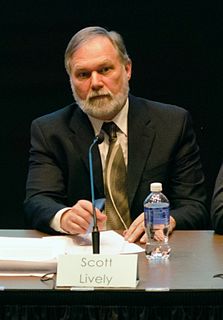A Quote by Max Lerner
Science itself is a humanist in the sense that it doesn't discriminate between human beings, but it is also morally neutral. It is no better or worse than the ethos with and for which it is used.
Related Quotes
[To the cultures of Asia and the continent of Africa] it is the Western impact which has stirred up the winds of change and set the processes of modernization in motion. Education brought not only the idea of equality but also another belief which we used to take for granted in the West-the idea of progress, the idea that science and technology can be used to better human conditions. In ancient society, men tended to believe themselves fortunate if tomorrow was not worse than today and anyway, there was little they could do about it.
Though we may be genetically wired for temporary happiness, we've also been gifted with the ability to recognize within ourselves a more profound and lasting sense of confidence, peace, and well-being. Among sentient beings, human beings appear to stand alone in their ability to recognize the necessity to forge a bond between reason, emotion, and their instinct to survive, and in doing so create a universe-not only for themselves and the human generations that follow, but also for all creatures who feel pain, fear and suffering-in which we are all able to coexist contentedly and peaceably.
Human nature itself is evermore an advocate for liberty. There is also in human nature a resentment of injury, and indignation against wrong. A love of truth and a veneration of virtue. These amiable passions, are the "latent spark" . . . If the people are capable of understanding, seeing and feeling the differences between true and false, right and wrong, virtue and vice, to what better principle can the friends of mankind apply than to the sense of this difference?
Donald Judd spoke of a 'neutral' surface, but what is meant? Neutrality must involve some relationship (to other ways of painting, thinking?) He would have to include these in his work to establish the neutrality of that surface. He also used 'non' or 'not' - expressive - this is an early problem - a negative solution or - expression of new sense - which can help one into - what one has not known. 'Neutral' expresses an intention.

































